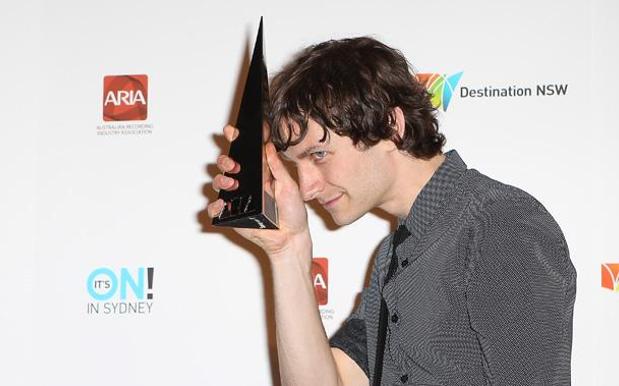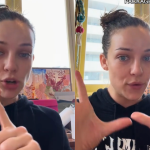
The Australian Recording Industry Association, better known colloquially as ARIA, is the body responsible for championing Australian music at home and overseas. The role of ARIA is divided into multiple responsibilities like protecting local musicians against music piracy, compiling statistical data about music sales in Australia, and, of course, it’s also responsible for the major music Awards event on the annual calendar, The ARIA Awards.
ARIAs CEO, Dan Rosen, has no illusions about the fact that the ARIA Awards have been less than perfect in recent years. After bottoming out with the universally panned 2010 Awards Ceremony, ARIA came back with a vastly improved but still imperfect 2011 format. This week we chatted to Dan who he gave us the skinny on ARIAs’ quest to update the formula and inject passion and enthusiasm into audiences and artists alike, to make the Awards a sincere celebration of the Australian music industry…
PEDESTRIAN: So what are the proposed changes to the ARIAs from a logistical point of view? DAN ROSEN: As we know, all good decisions are made at Cook and Archie’s [ed note: Sydney cafe equidistant from the ARIA and Pedestrian offices].
It’s an evolution of what we started last year, which was to embrace all things digital. For the first time last year we launched ‘Access All Areas’ which was a second screen approach to the awards so you could see what was going on backstage on your phone or tablet while you were watching it. That’s something we want to continue to evolve this year.
Last year we had nine of the top ten trending topics on Twitter and a lot of engagement on YouTube and Facebook, so we want to continue to evolve our digital presence this year. We also want to engage our audience more and we’ve done that by increasing the number of publicly voted awards including ‘Best Video’ for the first time and ‘Best Australian Song’. We’re really keen to get as many music fans involved as possible. And then with ARIA Week we just wanted to extend the footprint of the awards. With such a strong focus on Australian music we want to increase that exposure for more artists and give the industry a focal point for the year.
What are some of the events rolling out as part of ARIA Week? Showcase gigs around venues in Sydney, most likely Oxford Art Factory and The Beresford Hotel [featuring] up and coming artists who we believe to be fitting for ARIA nominations in the future.
We will also be doing master classes in relation to the industry, which is in an incredibly fast paced and ever-evolving thing to be involved with, so we want to explore some of the issues that are driving the industry forward and we also want to hold a big event about how social media and music have come together.
So it’s kind of extending the brand of ARIA beyond this one awards night and creating more of a presence across the Australian music industry? That’s right. It’s the one music event that Australia gets together for, so I guess we want to extend the week out a bit more so that if people are already [in Sydney where the event is held] there will be other events going on.
The other thing we’re very keen on is making the ARIAs the focus for Australia and the wider Pacific region for the music market. Australia just became the sixth largest music market in the world so we’re increasingly becoming a market that has global relevance and we want to make sure we can expose our artists – not just to everyone around Australia, but everyone around the world.
To me the ARIAs serves two functions. It’s an awards ceremony celebrating Australian music, and it’s also a television broadcast. How do reconcile these two different entities to create one coherent product? It’s a balancing act. One thing we do realise is that TV is one component, but we now look at all eyeballs as equal – whether that eyeball is on TV or on a mobile phone, a tablet or on the web. To us that’s why having the second screening, as well as all the other elements on offer.
For us it’s about Australian music and Australian music exposure. So if you’re a music fan and you want to engage with it on any media platform that’s okay with us; but clearly free-to-air television still provides massive exposure, so we want to make sure we make the show as engaging and exciting as possible.
What other key things have you guys learned in the past, say five years? We need to respect our artists and respect our audiences and be true to our art and to our musicians. That’s always going to be number one. We need to serve our artists and our industry. If we can get that right, then everything else seems to flow.
In regards to the Awards itself, how do you maintain a level of credibility that comes with rewarding things that are of value, and in turn gives the award itself value? How do you maintain that standard and ensure that the guidelines evolve in step with the music industry itself? We spend a lot of time each year working through the ARIA academy which is [made up of] over a thousand people in the industry, be it labels, managers, radio stations, or press. We make sure that the academy represents the right balance of viewpoints. We’re very mindful that we are accurately reflecting the large swathe of music in Australia.
What, for you, has been the hardest part of this job, particularly from the broadcast side? It seems like a thankless role in that regard. In reality, it’s incredibly rewarding. For us, success is when artists put “ARIA winning” at the front of their bio and use it to help define them as a quality act; or when we see a spike in their sales the week after the ARIAs. For example, when Boy and Bear‘s sales went up and their album started to climb back up the chart. In reality, we’re providing a service to celebrate the best and brightest of Australian music. If more people know a little more about great Aussie bands after the show, then I think we’re doing a good job.
But what is the hardest part of the job? Doing interviews, mate (laughs). There’s no one thing. It’s something that is difficult but it’s a passion and everybody at ARIA is just really committed to doing the best thing for our industry. You have your days, but all in all we think we’re doing really important work and we hope that the majority of people agree.
The ARIAs, much like the Logies, have an almost hokey stigma attached to it. How do you repel that Australian media attitude that can be very critical and very cynical of Australian award ceremonies? I actually don’t think we’re as cynical as we make out. There are of course small pockets, but there’s a difference between celebrating success and grandstanding. There’s no shame in celebrating great artistic work and it’s something we definitely shouldn’t be cynical about.
Last year when we were compiling the great moments of ARIA for our 25th anniversary, they included some of the most amazing moments in Australian music and cultural history. That in itself is not something you shouldn’t want to celebrate… But of course there will always be skeptics. I mean that’s life. But on the whole I think that for us, when the artists and managers take it seriously, that’s what’s important for us. Nobody ever built a statue of a critic, someone once told me (laughs). We’re just out there trying to do what’s best for our industry.
Where do you see ARIA going in the next five to ten years? We’re hoping to continue to grow our total audience, and that’s across television, web and mobile. We had a great year last year in building that, and we want to continue to double our web audience year on year.
We’d like to continue to rank across Twitter and Facebook and Youtube, that’s an important KPI for us. And in five years’ time, if we can look back and the last week of November is globally recognised as a week to help celebrate Australian music, that would be a huge success.
Is part of making the event more significant inviting international guests? I think international guests are definitely an important part because our music industry includes international acts on the charts, collaborating with our artists and touring here. All it does is help more people celebrate and more people engage with it, and we’re all for that.
What are you most looking forward to? I’m genuinely excited because it’s been such a strong year for Australian music. We are seeing more Aussie acts in the charts this year than any time in the past five to six years, proving that the artists that are going to be up for ARIAs will put up a good competition.
Photo by Mark Metcalfe for Getty Images



